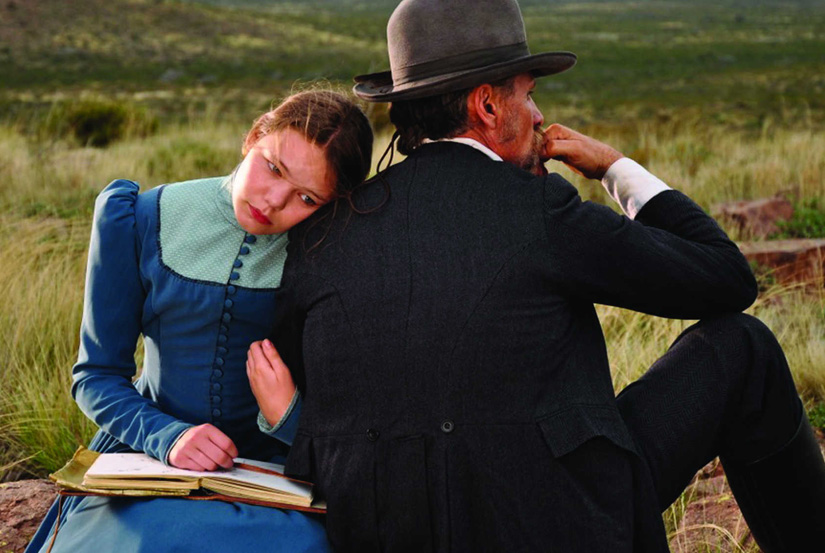
- Film
Foreign Film Submissions, 2015: Jauja (Argentina)
Part of the Hollywood Foreign Press Association’s mission is to foster greater understanding through world cinema. This year 72 Foreign Language films were submitted for Golden Globes consideration. Here is an overview ofg one of them.
Jauja, is the latest work of Argentine film director and screenwriter Lisandro Alonso and has variously been described as a “surrealist western” and “refreshingly absurdist”. Such terms could also be applied to the director’s career trajectory since making his first feature film, La Libertad, which was screened in the Un Certain Regard section at the 2001 Cannes Film Festival. Four feature films later – Los muertos (2004), Fantasma (2006), Liverpool (2008) and Sin título (Carta para Serra) (2011) – Jauja competed again in the Un Certain Regard section in 2014, this time taking home the FIPRESCI Prize.
The story takes place in Patagonia in the late 19th Century. Or so it seems as nothing is quite what it seems in this mind-bending story. It’s the story of a father and his teenage daughter (Viggo Mortensen and Viilbjork Malling Agger). A Danish engineer working with the Argentine Army who, after losing his daughter in the desert, loses himself to Argentina's Patagonia region. Jauja is also the story of her first love with a young soldier with whom she ends up eloping. Then it becomes the story of a man looking for his daughter. Only then does the landscape become the real protagonist, an unnatural Nature full of frontier’s archetypes and native warriors able to erase any trace of the runaway lovers or her father.
The film is a co-production between Argentina, Mexico, USA and the Netherlands and it echoes other western classics such as The Searchers or Coronel Kurtz’s long journey into the darkness in Apocalypse Now! But true to his style, Alonso takes Jauja in a different direction, time and place. A dog, a toy soldier, an old woman will end up being the only clues in this mysterious and haunting tale of searching that remains faithful to the director’s vision. Ultimately the movie, almost silent but spoken in Spanish and Danish, is true to the Spartan art films that Alonso is known for. The major difference here is the intensity of Mortensen's performance. A sharp contrast to the non-professional actors Alonso previously cast as leads.
Rocío Ayuso

